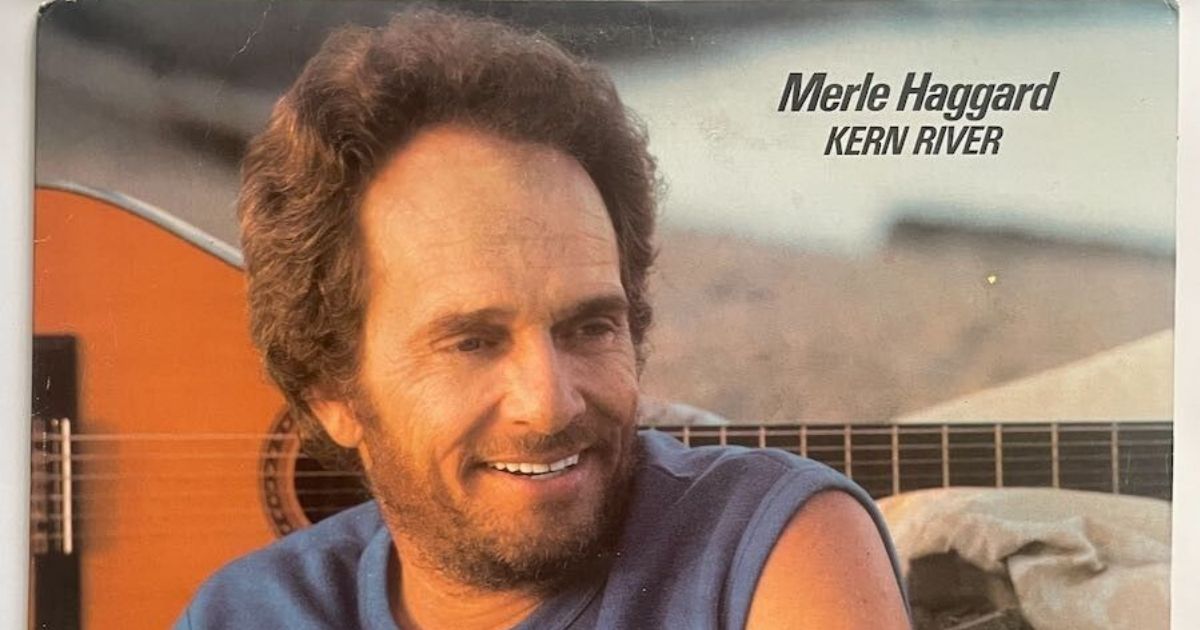About the song
Released in 1985, “Kern River” stands as one of Merle Haggard’s most haunting and emotionally charged songs, representing both a high point in his later career and a deeply personal reflection on loss, memory, and the cruel beauty of nature. The song was the title track of his 1985 album Kern River, released under Epic Records, and has since become one of Haggard’s most respected and enduring works. More than just another country ballad, “Kern River” is a masterclass in storytelling, restraint, and emotional honesty — qualities that made Merle Haggard one of the greatest songwriters in American music history.
The Story and Its Emotional Core
“Kern River” tells the story of a man recalling the tragic death of a woman he loved who drowned in California’s Kern River. The lyrics are spare and understated, but their simplicity only enhances the emotional impact. The narrator’s grief feels raw and timeless, delivered through Haggard’s weary, resonant voice. The song opens with a chilling first line — “I’ll never swim Kern River again” — a declaration of finality that immediately sets the tone. From that moment, the listener is pulled into a narrative of sorrow and remembrance, told by someone who has been permanently changed by loss.
Unlike many country songs of the time, “Kern River” avoids melodrama. There are no exaggerated emotions, no sentimental orchestration — just a man, his memory, and a river that took away his youth and love. The river itself becomes a symbol: at once beautiful and dangerous, representing both the allure and the indifference of nature. Through this metaphor, Haggard captures something universal — the way people are drawn to forces that can both enchant and destroy them.
Musical Composition and Style
Musically, “Kern River” is stripped-down yet powerful. The arrangement features Haggard’s signature Bakersfield sound, combining steel guitar, fiddle, and a restrained rhythm section that supports the vocal without overwhelming it. The tempo is slow and reflective, allowing the lyrics to take center stage. There’s a haunting, almost ghostly quality to the melody, as if it’s echoing from the past — a perfect complement to the song’s theme of memory and mourning.
Haggard’s vocal performance is particularly striking. His delivery is restrained but emotionally loaded; he doesn’t cry or plead, but every word carries the weight of lived experience. That quiet authenticity is part of what makes “Kern River” so powerful. It feels less like a performance and more like a confession.
Autobiographical and Symbolic Dimensions
While “Kern River” is not a strictly autobiographical song, it reflects the kind of realism that defined much of Haggard’s work. Born and raised in California’s San Joaquin Valley, Haggard was deeply familiar with the landscapes and communities he sang about. The Kern River, a real river that flows through central California before joining the San Joaquin River, has long been known for its treacherous currents and drowning incidents. Haggard’s choice to center a song around this river gives it an authenticity that resonates with listeners familiar with the region — and with anyone who has experienced tragic loss tied to a specific place.
Many fans and critics have also seen “Kern River” as a metaphor for Haggard’s own life and career. The song can be read as a reflection on the dangers of passion and ambition — how the very things that give life meaning can also cause the greatest pain. For a man who had lived through poverty, prison, fame, and heartbreak, Haggard’s connection to this theme feels deeply personal.
Critical Reception and Legacy
When “Kern River” was released, it reached the Top 10 on the Billboard Hot Country Songs chart, but its true impact went far beyond its chart position. Critics and fellow musicians quickly recognized it as one of Haggard’s finest achievements. However, there is a famous story that some Nashville executives initially disliked the song, finding it too dark or depressing. Haggard later recounted that one producer even said, “That’s the worst song I ever heard.” In response, Haggard reportedly fired him — a testament to his confidence in his artistic vision. Time has vindicated Haggard’s instincts: “Kern River” is now considered one of the most poetic and moving songs in the country canon.
In the years since its release, “Kern River” has been covered by numerous artists and continues to influence songwriters who admire Haggard’s honesty and craftsmanship. It also inspired the title of Kern River Blues, the final song Haggard recorded shortly before his death in 2016, serving as a poignant bookend to his career.
Conclusion
Ultimately, “Kern River” is much more than a country song — it’s a meditation on loss, nature, and the passage of time. With its spare beauty, emotional restraint, and unflinching realism, the song encapsulates everything that made Merle Haggard a legend. In just a few verses, he captures the essence of human grief and the quiet endurance that follows it. Decades later, “Kern River” still flows through the heart of American music — timeless, mournful, and profoundly alive.
